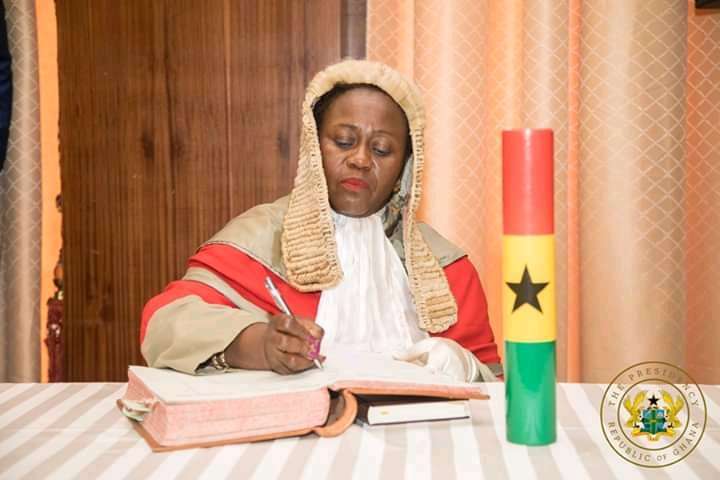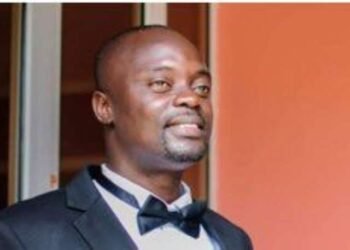In a strongly worded statement, Lawyer George Opare Addo, the National Youth Organizer of the National Democratic Congress (NDC), has voiced his discontent with the Supreme Court stay of execution on Speaker Alban Bagbin’s ruling, which declared four parliamentary seats vacant, describing the judicial process as deeply flawed and alarming.
His remarks highlight broader concerns about the influence of powerful litigants and the deteriorating trust in Ghana’s judicial system.
“For an application to be filed on a Friday, to be able to get the application scheduled for hearing the same day, be able to marshal five supreme court judges including the CJ, have the application heard immediately, got the order granted, have it typed out and read over by the judges, and release same to the party/litigant the same day is extraordinary”.
Lawyer George Opare Addo, NDC National Youth Organizer
Lawyer Opare Addo compared this case to the experiences of anti-galamsey protestors who were granted bail by the courts but could not secure the order the same day, even when the matter was presided over by just one judge.
“That litigant must have so much influence,” he remarked, drawing attention to what he sees as preferential treatment for certain individuals within the judiciary.
He further stated that the judiciary’s image is already facing serious trust issues, with public confidence at an all-time low. “How would an ordinary Ghanaian or foreign investor have confidence in the judicial process if this is how justice is administered?” Lawyer Opare Addo asked rhetorically.
According to him, the current state of the judiciary is one of the reasons foreign investors and businesses increasingly prefer foreign forums for dispute resolution, as they have little faith in Ghana’s judicial integrity.

Implications of Supreme Court Ruling
Diving deeper into the legal implications of the court’s actions, Lawyer Opare Addo described how the application was moved as “scandalous”. He criticized the absence of judicial authority to support the court’s unprecedented decision.
“Prayer was for an interim injunction (because the application is ex parte). The court for whatever reason granted an interlocutor injunction instead. It’s like asking your sweetheart for a Tico and she gifted you a G Wagon”.
Lawyer George Opare Addo, NDC National Youth Organizer
This, he argued, sets a dangerous precedent. “The danger in this bad precedent is how other courts may use same,” Lawyer Opare Addo warned, suggesting that individuals could now face court orders without prior notice of a suit, which could have far-reaching consequences.
He illustrated this by stating that one could be ordered to stay away from their home without any prior warning, simply awaiting the final determination of the matter.
His critique extended beyond the immediate case to the broader implications for constitutional law and legal education.
He predicted that law teachers will now face great difficulty teaching constitutional law and the law on injunctions, as this ruling defies established legal norms. “What is this?” he questioned, highlighting the perplexing nature of the court’s decision.
Lawyer George Opare Addo further cautioned that the implications of this ruling should not be dismissed based on political affiliations.
“You don’t care because you belong to the NPP or nothing concerns you? Wait until it gets to you,” he said, warning that Supreme Court decisions are often used as precedents by lower courts, which could result in similar outcomes for ordinary citizens in the future.
In his concluding remarks, the NDC National Youth Organizer, Lawyer George Opare Addo, turned his attention to former President John Dramani Mahama, stating that the task ahead for him[Mahama] is “bigger than we may even imagine.”
However, he expressed confidence in former President Mahama’s ability to “fix it” and reset the country’s ailing systems, including the judiciary.
According to him, Ghana is in dire need of a reset, and Mahama is the person to bring about this much-needed change.
In a teaser for his next write-up, Lawyer Opare Addo hinted that he would delve into legal precedents, specifically the landmark case of Tuffour v. Attorney-General and the decision by Justice Sowah on the doctrine of separation of powers.
Lawyer George Opare Addo’s remarks underline a growing discontent with Ghana’s judiciary, raising crucial questions about fairness, transparency, and the rule of law in the country’s highest court.
READ ALSO: Legal Maze: Supreme Court, Parliament, and Constitutional Interpretation




















